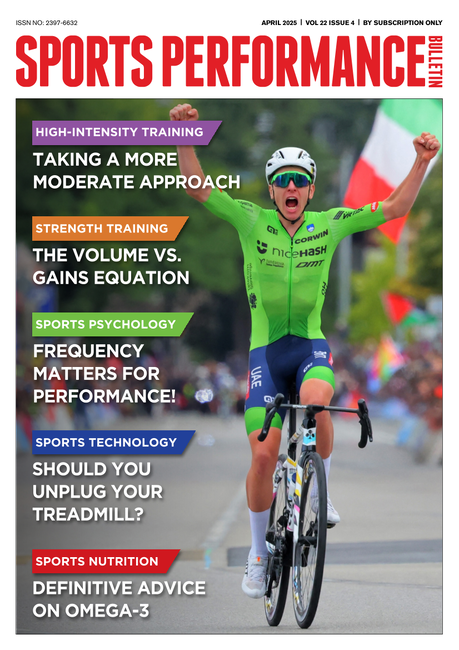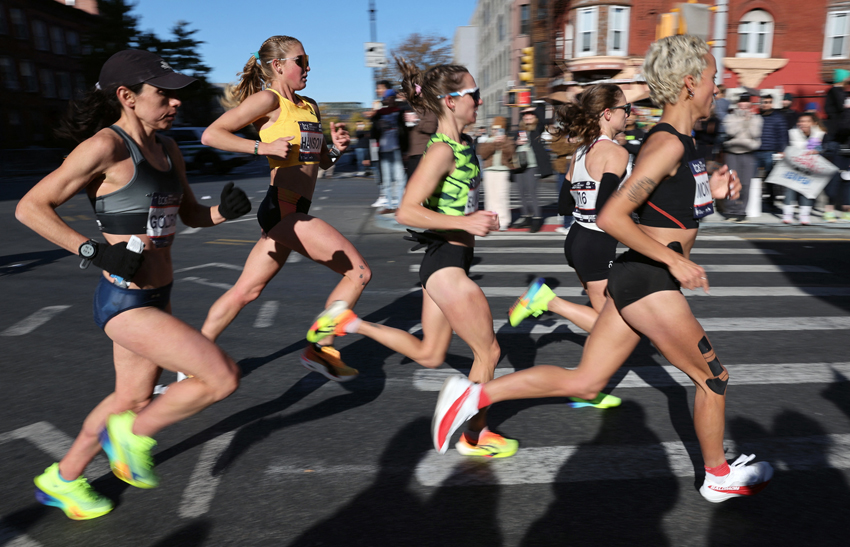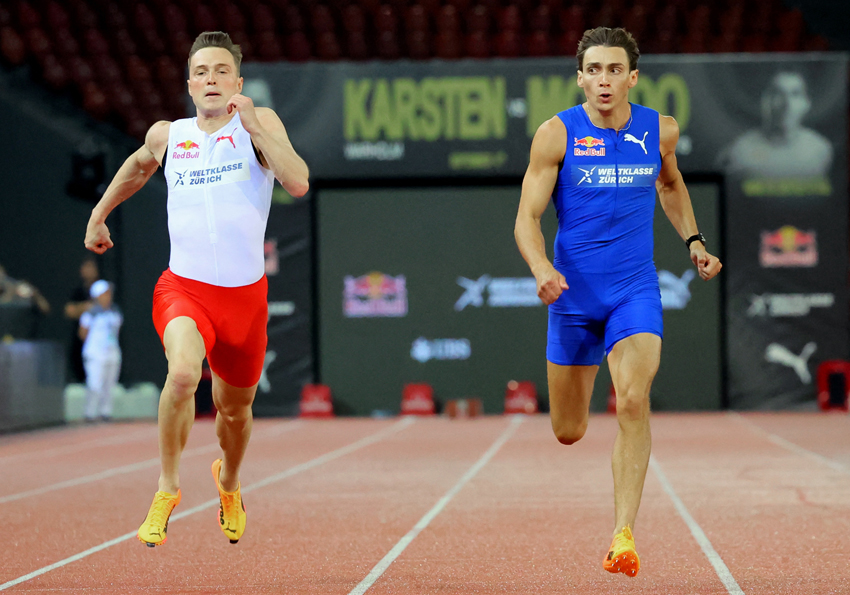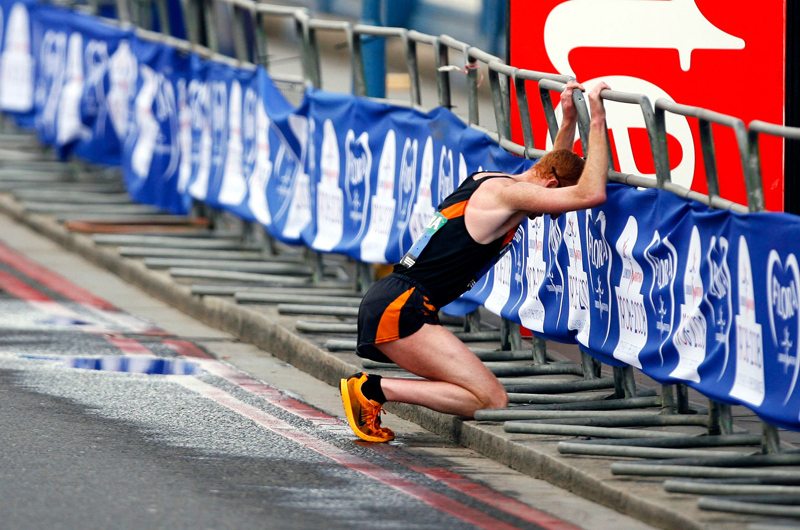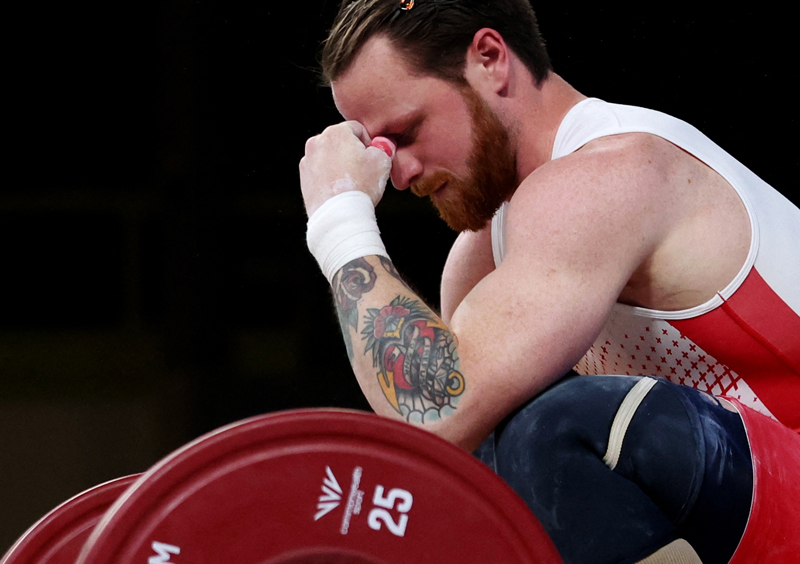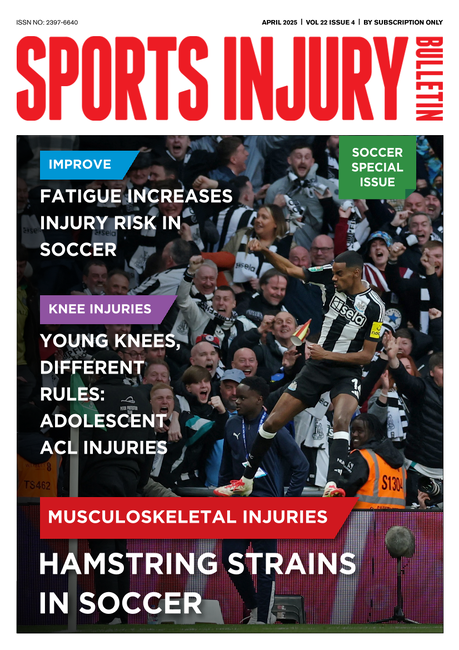Great expectations: use your brain for performance!

Andrew Hamilton looks at recent research showing that your mental expectations of exercise performance can actually change the way you perform
There are many parameters that determine how well an endurance athlete will perform. Without doubt however, one of the most important is maximum aerobic capacity (abbreviated as VO2max), which is widely accepted as the best measure of cardiovascular fitness and aerobic power. VO2max describes the maximum amount of oxygen you can absorb, transport round the body and utilise in your muscles when working flat out. All other things being equal, an endurance athlete with a higher VO2max will outperform an athlete whose VO2max is less. Because VO2max is physiological measurement of the maximal amount of oxygen consumed per kilo of body mass per minute, you might assume that there’s no way an athlete’s psychological state could change this measure. But a fascinating recent study suggests that your expectations could indeed change your measured VO2max in a test situation [J Sports Med Phys Fitness. 2018 May;58(5):744-749].
The research
The participants in this study were experienced runners who regularly ran for exercise or competitively. All participants completed two VO2max tests within a 2-week period at similar times of the day. After the first test and prior to the second, the runners were (unknown to them) allocated into two groups. Before the second test began, half of the runners were given positive feedback and encouraged as they were informed that their aerobic capacity on the first test was above the group average (when it wasn’t). The remaining runners were told that a second test was needed for validation purposes – ie no positive feedback was given. The net result was the half of the runners went into the second VO2max test expecting to do well, while the other half had no expectations (positive or negative). The results of the two groups were then compared to see if the runners’ positive expectations altered their VO2max test results in the second test.The findings
The key finding was that the runners with enhanced expectancy demonstrated a significant increase (+3.28%) in their VO2max from test number 1 to number 2 (up from 61.1mls/kg/min to 63.7mls/kg/ min). This was in contrast to the other runners, who experienced no such gains (indeed, they showed a small decline of 1.6mls/kg/min). The magnitude of the gains in the runners with enhanced expectations was very significant, meaning that these gains were highly unlikely to have come about by chance, and must have been therefore due to their expectations..PP verdict
How could the runners’ expectations possibly affect their maximum aerobic capacity, especially when other measures such as perceived exertion and respiratory exchange ratio (basically, what fuels your body uses to produce aerobic power) remained the same in both groups of runners? One possible explanation is the way the brain monitors and regulates exercise intensity. We already know that your mood and perceptions of an event can affect the level of fatigue you experience during that event – witness the use of music and positive mental imagery to boost performance.Also, recent research has demonstrated that cyclists racing an avatar can be mentally tricked, resulting in better performanceInt J Sports Med. 2016 May;37(5):341-6.. These cyclists were told that the baseline pace of the avatar was the same as their own baseline pace; however, it was actually set 2% faster, which led the cyclists to perform better than they had done previously. And even when they were informed about the deception, they continued to perform better in future trials, suggesting that it enabled them to recalibrate their pacing and effort.
PRACTICAL SUGGESTIONS
How can you apply these findings in practice? It’s obviously not possible to deceive yourself but here are some tips that could help boost your performance:- During more challenging training sessions/races, remind yourself of even harder and longer sessions that you’ve successfully completed to put your current effort into context; this should feedback into the your brain’s processing loop, reducing fatigue.
- Include a few very high-intensity interval training sessions in your training programme; they’ll help to ‘teach’ the brain that maximum intensities in a race situation are ‘OK’ for your body, and will also help to lower fatigue perception at normal training pace.
- Try using positive mental imagery prior to your races; visualising success in your mind can help over time to recalibrate your brain’s expectations, and therefore improve performance.
You need to be logged in to continue reading.
Please register for limited access or take a 30-day risk-free trial of Sports Performance Bulletin to experience the full benefits of a subscription. TAKE A RISK-FREE TRIAL
TAKE A RISK-FREE TRIAL
Newsletter Sign Up
Testimonials
Dr. Alexandra Fandetti-Robin, Back & Body Chiropractic
Elspeth Cowell MSCh DpodM SRCh HCPC reg
William Hunter, Nuffield Health
Newsletter Sign Up
Coaches Testimonials
Dr. Alexandra Fandetti-Robin, Back & Body Chiropractic
Elspeth Cowell MSCh DpodM SRCh HCPC reg
William Hunter, Nuffield Health
Keep up with latest sports science research and apply it to maximize performance
Today you have the chance to join a group of athletes, and sports coaches/trainers who all have something special in common...
They use the latest research to improve performance for themselves and their clients - both athletes and sports teams - with help from global specialists in the fields of sports science, sports medicine and sports psychology.
They do this by reading Sports Performance Bulletin, an easy-to-digest but serious-minded journal dedicated to high performance sports. SPB offers a wealth of information and insight into the latest research, in an easily-accessible and understood format, along with a wealth of practical recommendations.
*includes 3 coaching manuals
Get Inspired
All the latest techniques and approaches
Sports Performance Bulletin helps dedicated endurance athletes improve their performance. Sense-checking the latest sports science research, and sourcing evidence and case studies to support findings, Sports Performance Bulletin turns proven insights into easily digestible practical advice. Supporting athletes, coaches and professionals who wish to ensure their guidance and programmes are kept right up to date and based on credible science.


